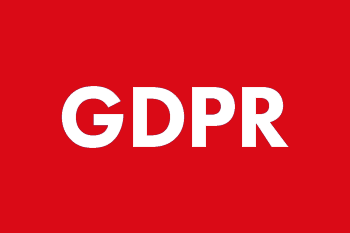This might sound crazy. Sometimes we work for clients who don’t tell us much about what they do or when they’re going to do it. If we’re not careful (although we are, so in reality this gets defused pretty quickly) information a company puts out through its own brand content efforts can look less informed than when a third-party publication writes about the same subject. And that’s just plain wrong, right?
You might have heard some people, most notably Google, talk about the death of the press release. First of all that was in the context of certain companies and sites trying to play an SEO game through press release publishing. But it’s also about big companies just having to blog, as those who are interested in them will follow and read the posts. So that means no need for the expensive PR game that has been played for decades.
But most companies aren’t Google. It is understandable that these companies need processes – PR, advertising, brand content and so on – to say ‘Hey world, we’re still here and we’re actually doing some cool things’. Of course not all the things will be cool but that’s not the point here.
So agencies like us get called in to help, typically creating useful content if it’s for a B2B client.
In fact we spend a lot of time telling the world that content from brands can be at least as good as content on the same topics produced by independent media. About a year ago, we helped a brand launch a new set of products with supporting business papers and blog posts. On the day these products launched, a well-known technology publication pumped out a 250-word nib (news in brief) about the launch. If the phrase ‘pumped out’ sounds bad, it is meant to be. I’m not being harsh for the sake of it but the nib was terrible. I won’t name them and that’s not because it was one of the several such tech publications I’ve written for or managed.
Why was their story poor? The most obvious answer is that it was bashed out by a time-poor journalist from a press release, without speaking to anyone. They might well have told you they had more interesting things to cover.
We, on the other hand, had weeks to study the products and related areas. And you could argue our writing had to be really high quality or else it would only reinforce some people’s view of brand content being ‘lesser’ content, certainly not media-grade.
Which brings me back to the opening point. What happens when we have weeks and good budget but we just aren’t given the details? What happens when one of our writers, as a hired brand journalist, calls up that company’s press office to get those details?
For one thing, the people who hired us and the people who run the press office usually report into the same CMO, so he or she might well be asking what’s going on. (Maybe not so politely.)
Secondly, press offices are very interested in getting favourable coverage from the media and other influencers – in short, independent third parties. Which we’re not. Every minute spent helping us could be a minute getting coverage somewhere else, even if that somewhere else is increasingly another company’s brand publication.
The bigger picture here, or answer or prevention or whatever you want to call it, is that brand content publishers, like all hired agencies, need to be properly briefed.
The difference is that many brand content creators are ex-journalists. Some are even working journalists doing some work on the side. For people like that, picking up the phone to get information quickly and directly from a press officer or PR agency is second nature.
But when the time comes for that PR machine to report where it got coverage and the people they helped, what are they supposed to say – “For enquiries 6 and 31 we assisted ourselves”?
We’d love to hear what you think, especially if you’re a PR or in charge of brand content programmes.
*photo credit: balance via photopin (license)
–
Follow us on Twitter – @ColContent
Download our exclusive research and report ‘PR’s love-hate relationship with ‘brand journalists’ – and why it matters’









